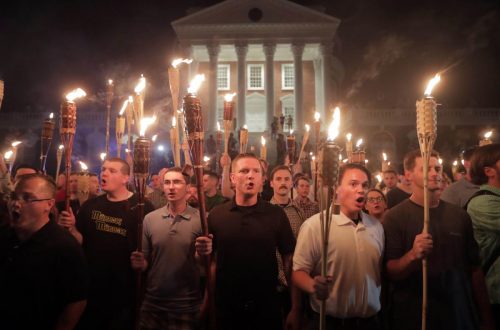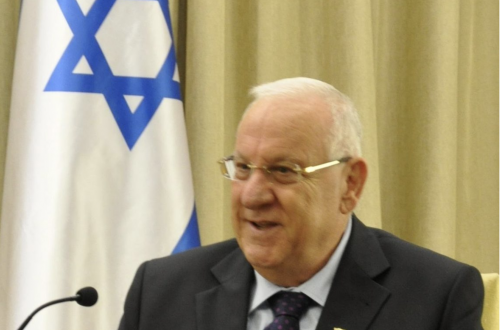Nick Cohen, writing in today’s Observer, offers some serious reflections on the dangers posed by the government’s recent proposals:
I suspect that Theresa May’s order that internet and mobile phone companies must allow the police to identify who was using a device and when will probably fail to stir you too. Essential clues for 21st-century crime fighters, you could say. Better to help the police catch dangerous men than let them escape justice.
I am not so sure. I am not worried by what the Home Office is doing but by what it wants to do. Nick Clegg has lost count of the number of times he has had to intervene to stop the security establishment crushing basic liberties. …
Most importantly to my mind, they blocked May’s astonishingly illiberal “extremism prevention orders”, which would have allowed the state to censor opinion rather than prevent crime by banning speakers who are not inciting violence or breaking the law.
He isn’t convinced Labour would prove any less authoritarian.
David Mitchell casts a more humorous eye on the measures taken to protect our security, mocking the banality of a leaflet which advises people to ‘run, hide, tell’.
This is sensible advice if there’s an emergency. No one wants ordinary members of the public charging unto breaches without proper training. It could turn a terrorist atrocity into a health and safety nightmare from which we wake to a litigation shitstorm for breakfast. So it’s a reasonable thing to say.
It’s also an unnecessary thing to say. If people hear gunfire and explosions in a railway station or airport, they don’t need to be told to run away, take cover or tell someone about the issue. …
But the leaflet gives more detailed advice: “If you hear gunfire or a weapons attack, leave the area safely if you can. If this puts you in greater danger, find a safe place to take cover.” This raises more questions than it answers. How can you tell whether it’s safe to leave the area? How do you know when trying to flee would put you in greater danger than hiding? What sort of place would be safe to take cover in? You might say: everyone would use their common sense. But the leaflet’s target demographic appears to be people who don’t have any.
But he concludes on a sharper note:
This superficially fatuous leaflet is, in truth, a political message: terror is lurking everywhere and only powerful, well-funded (and possibly armed) security services can protect you from it. The people behind this campaign are using fear to get what they want. I thought that was the kind of thing we didn’t give in to.
One place terror apparently wasn’t lurking was in the case of Ryan McGee. He was (according to the prosecutor) ‘not a terrorist’. One can understand why he couldn’t be prosecuted for crimes which couldn’t be proved:
“it was never McGee’s intention to use the device for any terrorist or violent purpose, and … he had no firm intention to activate the device”
but given the sheer weight of evidence of his extreme far right links and sympathies:
The journal also revealed his obsession with right-wing groups, such as the National Front, KKK and BNP.
One page featured a picture of a soldier with a St George’s cross instead of a face brandishing a rifle, knife and two grenades, standing in front of a housing estate named ‘Freedom St’.
Books discovered at the scene, included the US Army Improvised Munitions Handbook, US Army Guerrilla Warfare Handbook and The Turner Diary, a controversial and racist book about a violent revolution in America which leads to the extermination of ‘impure’ people
his interest in terrorist acts:
He also had an obsession with real-life events on YouTube and the internet, including footage of two bound and gagged men beneath a swastika flag, one being beheaded and the other executed by a gunshot to the head.
some of his statements
Police also found a journal at Ryan McGee’s home containing racist comments about ‘millions of immigrants flooding the streets of Europe’ and a vow ‘to drag every last immigrant into the fires of hell with me’.
and the weapons he had collected or made:
Police believe Ryan McGee was just “days, weeks or months” from perfecting the device which could have killed or maimed.
But they do not believe he had a specific target in mind.
The nail bomb, made in a pickle jar, contained 181 metal screws and glass.
Officers also discovered an arsenal of guns and knives, right-wing material and English Defence League flags, together with the bomb-making manual The Anarchist Cookbook.
one can understand why many are finding the positive assertion that he was ‘not a terrorist’ a bit odd. The most popular comment under the Mail’s report was this:
Strange how the word ‘terrorist isn’t mentioned once in this article. I thought that’s what we called people who made bombs.
The two least favoured comments represent opposite poles of the spectrum:
Horrific, UKIP and EDL need to be banned to preserve this nations multicultural fabric
Did he actually commit a crime though?
and the fact both were unpopular reflects the fact that most people take security issues seriously but react negatively to attacks on our freedoms.


